Cases We Handle
Financial abuse
- Patients Property Act disputes
- Committeeship applications
- Disputes involving representatives pursuant to Representation Agreements
- Disputes involving attorneys pursuant to Powers of Attorney
Vancouver Representation Agreements
The Representation Agreement Act provides a procedure for an individual to appoint someone as their legal representative to handle routine financial matters, make or assist with legal, personal and health care decisions in anticipation of the time when they are will need help with or will be unable to make those decisions on their own.
The Act does not allow for the appointment of a person who is paid to provide personal or health care or who is an employee of a facility providing personal or health care unless the individual appointed is also a child, parent or spouse. Unless the named person is a spouse, the representation agreement may consider naming another person as a “monitor” to help ensure that the representative lives up to his or her duties.
Responsibilities of Vancouver Representatives
The specific duties of the representative are set forth under the terms of the agreement and can include:
- Wishes of the Individual: The representative must follow the wishes or the instructions of the individual if it is reasonable to do so.
- Honesty: The representative must act honestly and in good faith and exercise the care, diligence, and skill of a reasonably prudent person.
- Separate Money: The representative must keep their money and property separate from those of the individual and keep accounts and records of the individuals’ finances.
Revoking the Agreement
The Representation Agreement Act sets out the way the representation agreement can be cancelled or changed. To cancel the agreement, if a person is capable, they must deliver a written notice of the revocation to each person appointed as a representative, alternate representative or monitor. That written notice must be delivered in accordance with the regulation by delivering by registered mail, leaving a copy of the notice with the person or at their address with an adult person who resides with the person to be notified.
Power of Attorney Abuse
A “Power of Attorney” is a legal document through which one person, known as “the donor”, authorizes a second person, known as “the attorney”, to act on their behalf. An individual named in a Power of Attorney has a legal duty to follow the direction of the person giving the authority or to act as a fiduciary if the person can no longer direct them. Unlike a Representation Agreement which can confer upon the representative the power to make an individual’s personal care and health care decisions, the power of attorney can only authorize the attorney to make financial and legal decisions on behalf of the donor.
If the named attorney abuses the terms of a Power of Attorney, the abuse can be stopped by revoking the document, generally where the donor still has legal capacity. Often times this process requires the assistance of a lawyer and the courts to recover money, property or other assets under the terms of the Power of Attorney Act. If the donor is no longer capable, a concerned person can apply to Court to be appointed committee of the adult pursuant to the Patients Property Act (where the appointment necessarily revokes the Power of Attorney) or make a report to the PGT that an attorney is abusing his or her power. The PGT is required to review that report and conduct an investigation, apply to Court to revoke the power or seek other relief or advise the concerned person to make his or her own application to Court to seek similar relief.








